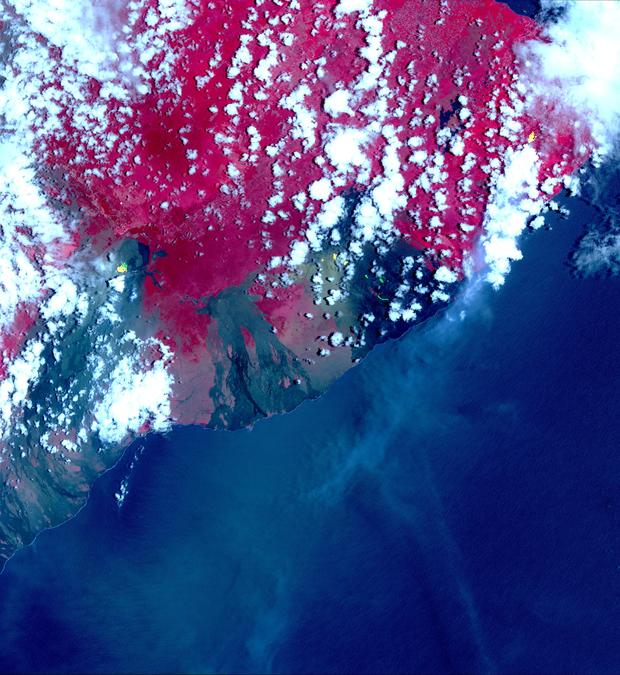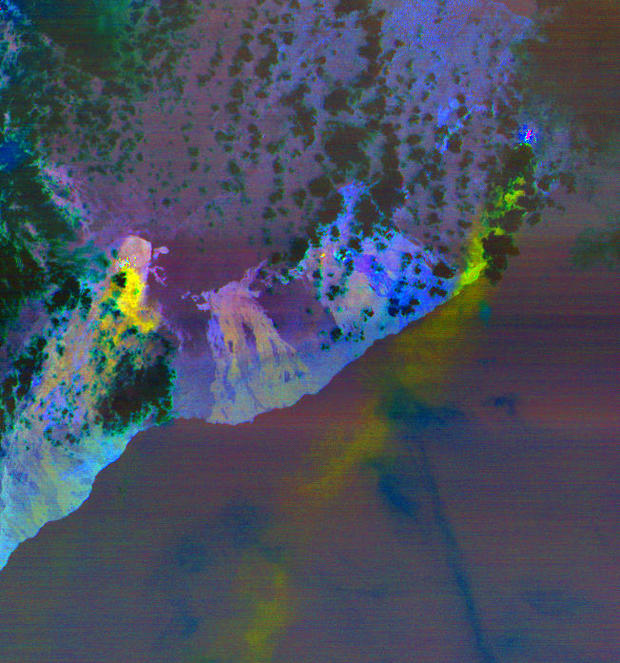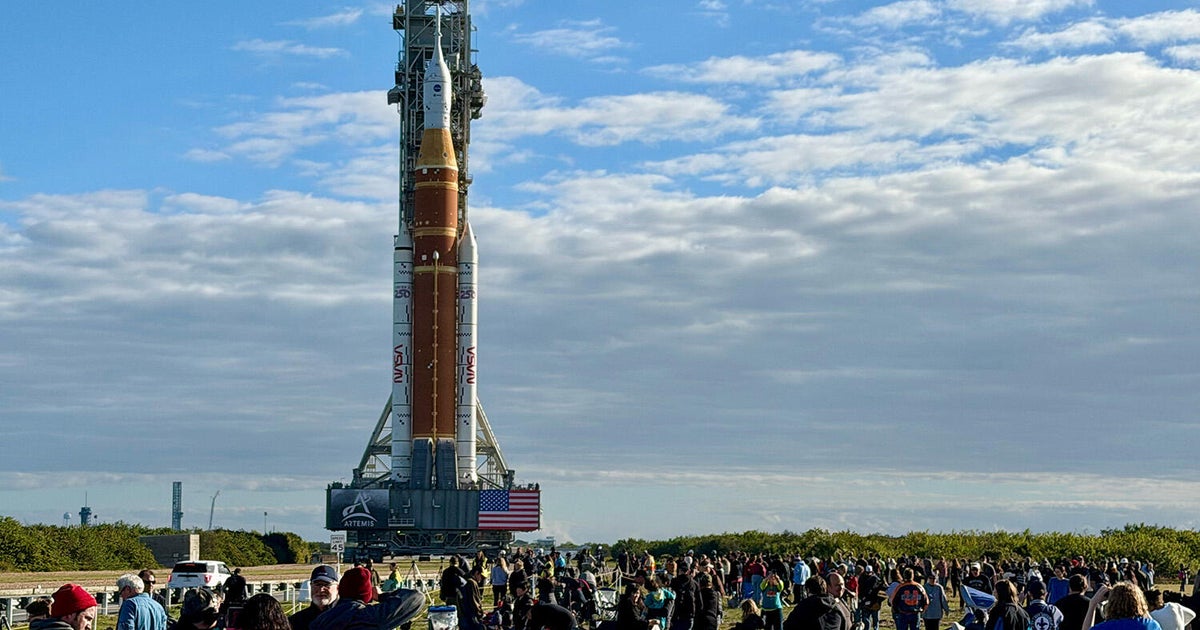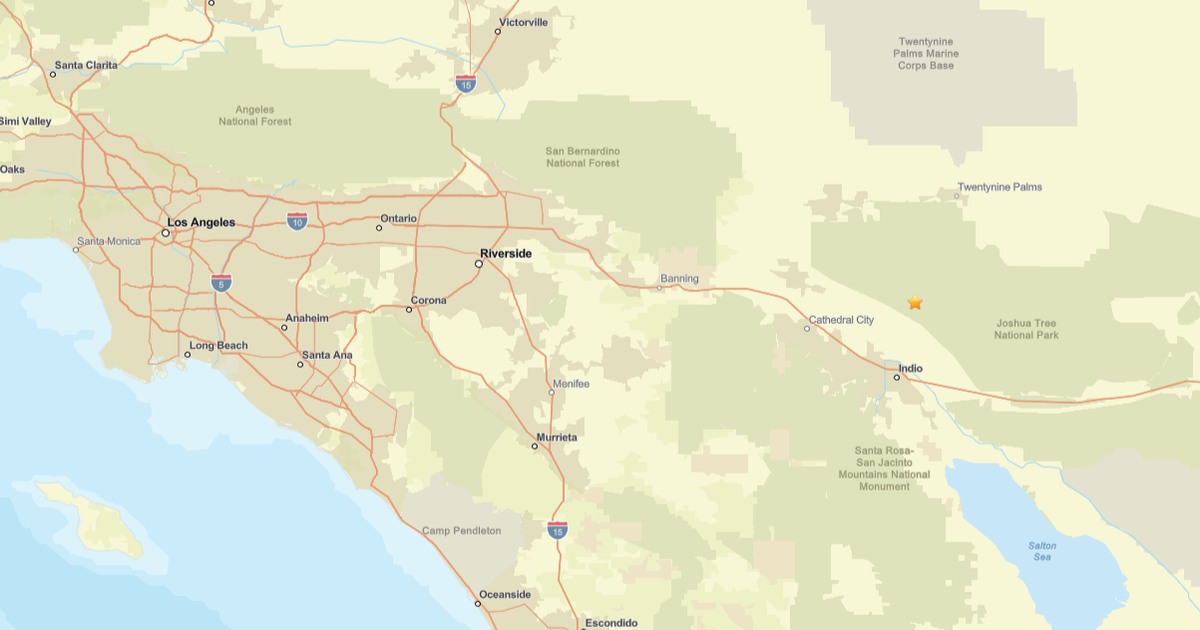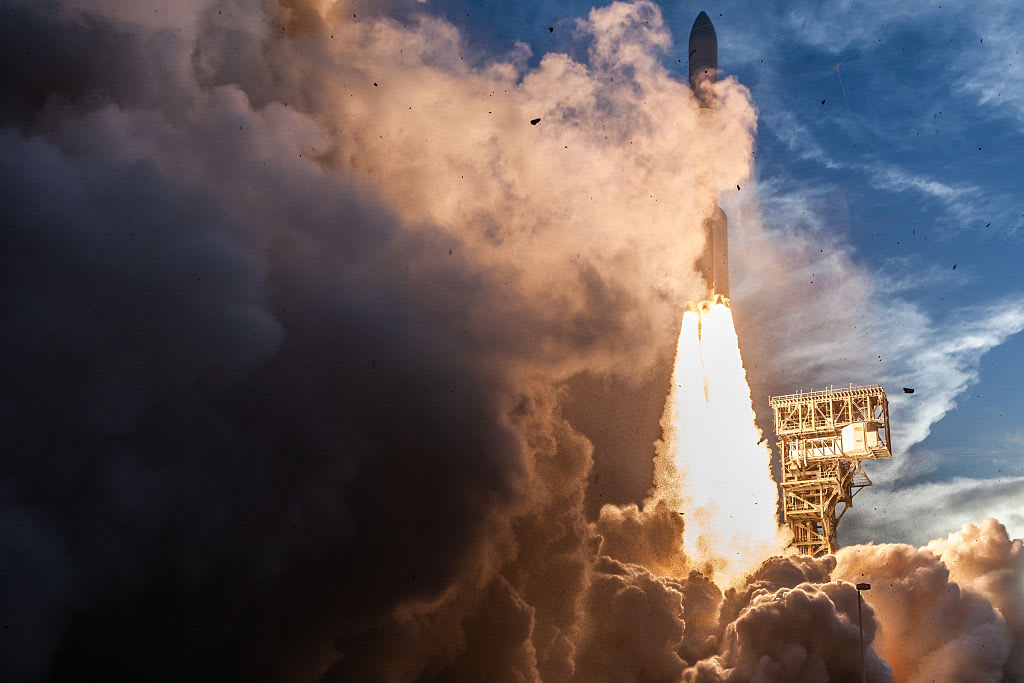NASA satellite photos show lava-oozing volcano fissures on Hawaii's Big Island
Images taken on NASA's Terra satellite show volcano fissures that have oozed lava and gas in recent days on Hawaii's Big Island. The fissures are located in the East Riff Zone of the Kilauea volcano, which began erupting last week.
One image shows hot spots -- fissures and new lava flow as of Sunday -- in yellow. The red areas in the image, taken from the Advanced Spaceborne Thermal Emission and Reflection Radiometer (ASTER) on the Terra satellite, depict vegetation.
The gray and black areas show old lava flows, according to NASA.
Another image, also from Sunday, shows yellow and green streaks depicting sulfur dioxide gas, which can be dangerous at high levels.
The images were taken before two new vents opened up Tuesday on Hawaii's Big Island. Those vents prompted Hawaii County to issue a cellphone alert ordering stragglers in Lanipuna Gardens to leave immediately.
Authorities had previously ordered nearly 2,000 residents to leave the community and the neighboring Leilani Estates, both located in the mostly rural district of Puna on Hawaii's Big Island. But some had ignored the order and stayed to watch over their property.
"There were a number of people at their residences," Talmadge Magno, the administrator for Hawaii County Civil Defense, said at a news briefing. There was no sign of holdouts in Lanipuna afterward, he said.
There are 14 lava-and-gas producing fissures in Leilani Estates, after the two new ones formed Tuesday. But the flow of lava is not constant.
Edwin Montoya, 76, had planned to stay to care for animals and keep looters away from his family's property in the community. But he was forced to evacuate after the new fissures emerged, including one just a mile away.
"I'm in my truck right now on my way up the road," he said. "The police came down here and made me."
Both Leilani Estates and Lanipuna Gardens are in a forested, remote part of the Big Island on the eastern flank of Kilauea volcano, which has been erupting continuously since 1983. In recent years the volcano has mostly released lava in hard-to-reach areas inside a national park or along the coastline. But last week, vents popped open and released lava, gas and steam inside residential neighborhoods.
There is no indication when the eruption might stop, or how far the lava might spread.
Officials warn that lava could flow downhill and burn areas that are not currently in danger, and toxic volcanic gas could kill people, especially the elderly and those with breathing problems.
Hawaii Gov. David Ige told evacuees he has called the White House and the Federal Emergency Management Agency to tell officials that he believes the state will need help to deal with the volcano on the Big Island.
A total of 36 structures, including 26 confirmed homes, have been destroyed. Aerial surveys cannot make out whether some of the structures are homes or other types of buildings.
